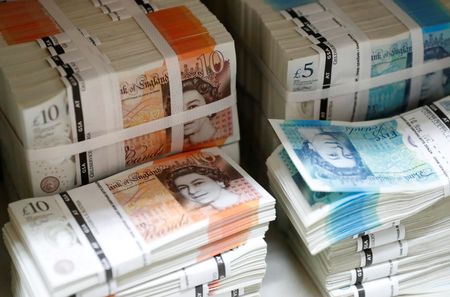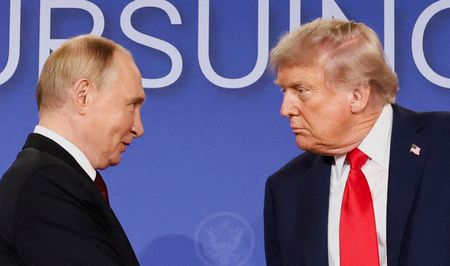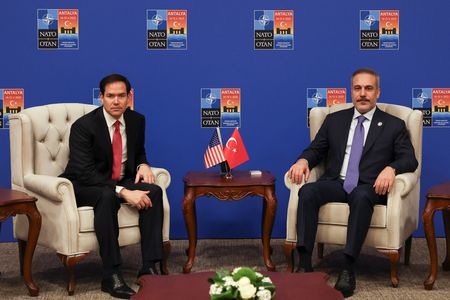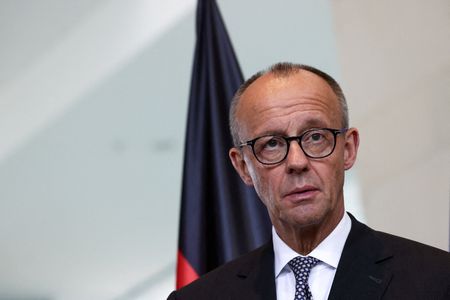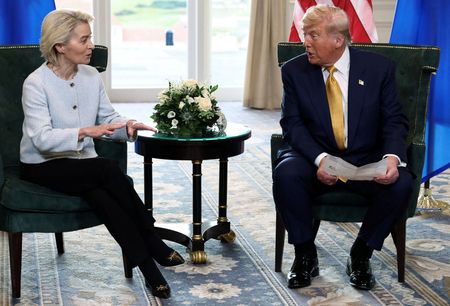By Yadarisa Shabong
(Reuters) – The British pound strengthened against the dollar and the euro on Thursday, as traders turned their attention to U.S. tariffs and the risk of an intensifying global trade dispute, a day after finance minister Rachel Reeves’ fiscal update.
U.S. President Donald Trump on Wednesday unveiled a 25% tariff on imported vehicles to be implemented on April 3, expanding a global trade war and testing already strained ties with allies.
Sterling rose 0.28% to $1.2922 against the greenback and was a touch stronger against the shared European currency, with the euro easing to 83.39 pence per pound.
Reeves said on Thursday that Britain was working intensively with Washington to secure an exemption from U.S. autos tariffs and could review subsidies enjoyed by Elon Musk’s Tesla to better support its industry.
The United States is Britain’s second-largest car export market after the European Union, with passenger car exports to the U.S. worth 7.6 billion ($9.8 billion) in 2024, mainly made up of premium and luxury cars, according to data from the Society of Motor Manufacturers and Traders.
The impact of the auto tariffs was muted in the currency market, with global auto stocks suffering the brunt of the fallout. British luxury carmaker Aston Martin’s shares dropped to a record low on Thursday.
‘RELATIVELY INSULATED’
Sterling hit its lowest since March 11 on Wednesday after Reeves announced spending cuts and the UK’s Debt Management Office said it would issue fewer bonds than expected in 2025/26.
The negative impact on sterling from the budget update has been unwound, not on a reconsideration of what Reeves said, but the UK being “relatively insulated” from tariff impacts, said Nick Rees, head of macroeconomic research at Monex Europe.
Apart from sectoral tariffs, Trump is also expected to announce country-specific reciprocal tariffs on global trading partners on April 2.
Trump’s reciprocal tariffs could cut the size of the British economy by up to 1% and wipe out most of its fiscal buffer, the government’s fiscal watchdog said on Wednesday.
Britain has hoped to avoid U.S. tariffs, arguing that both countries report trade surpluses with each other – including goods and services – owing to measurement differences.
($1 = 0.7730 pounds)
(Reporting by Yadarisa Shabong in Bengaluru; Editing by Mark Potter)

